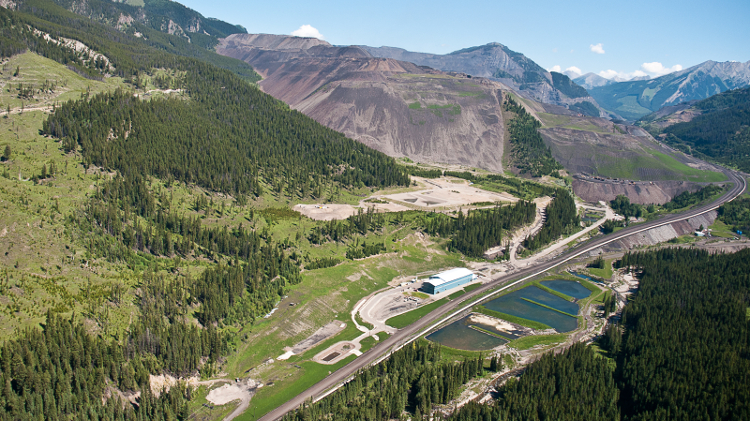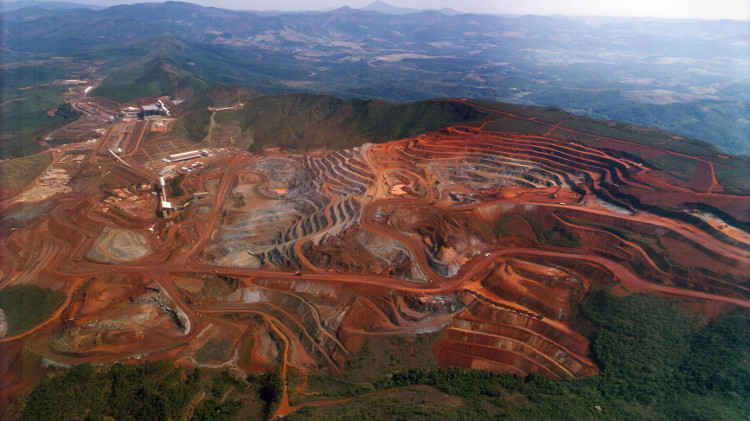Surrounded by members of his new administration, President Donald Trump reversed Barack Obama’s halt on the Keystone XL pipeline on Jan. 24. The pipeline will send more than 800,000 barrels a day from Alberta to refineries in Texas and the Gulf Coast. Office of the President of the United States
If the first weeks are any indication of what is to follow, the policies of United States President Donald Trump’s administration could have lasting impacts on the Canadian petroleum industry, global transparency regulations, and North American trade overall.
Within days of assuming the presidency on Jan. 20, Trump signed a swift streak of executive orders, including one immediately reversing his predecessor’s veto on the controversial Keystone XL pipeline. The pipeline will extend from Alberta to refineries in Texas and the Gulf Coast, passing through six states along the way.
By 2014, the pipeline had become symbolic of the ongoing battles between President Barack Obama’s administration and a newly Republican-controlled Senate, in addition to the clash between environmentalists and the fossil fuel industry.
Both the federal Liberal and Conservative parties, in addition to Natural Resources Canada and the National Energy Board, have been supportive of the pipeline and its promise to create some 2,200 Canadian jobs in the construction phase alone. In part due to falling oil prices, Alberta’s unemployment rate rose to 7.4 per cent in 2016 – the highest since 1996.
The pipeline also puts Canada’s oil sands industry on more stable footing in the international market and signals the potential for future pipelines with farther reach.
“In the past, Canada has been seen as a country that’s almost landlocked, since we export almost no oil or gas outside of North America. So these pipelines should help attract some foreign investment since Canada can now have greater access to the U.S. Gulf Coast, and potentially greater access to the west coast, which in turn gives us more access to Asia,” said Reynold Tetzlaff, national energy leader with PricewaterhouseCoopers. “Keystone shows the world that Canada actually has the ability to get some of these infrastructure projects done, which we haven’t shown in the past five years, to our frustration.”
Trump’s embattled order to ban citizens of several Muslim-majority nations could also alienate some of the U.S.’s traditional OPEC suppliers, making Canadian crude all the more appealing, according to Canadian Association of Petroleum Producers president Tim McMillan.
“When given the option between granting access for Canadian oil to international markets and continuing to meet demand with Saudi Arabian, Venezuelan, Iraqi, and Nigerian oil, the choice is obvious,” he stated in a press release.
Trump’s promise to eliminate regulations stymieing the extractive industry could have far-reaching consequences.
On Feb. 14, the President used the Congressional Review Act to expunge elements of the Dodd-Frank Act, which required oil and gas and mining companies to report payments to foreign governments. For years extractive industry lobbyists argued that reporting requirements left American firms unable to compete with other international companies unfettered by such transparency measures.
Yet the regulations were primarily aimed at curbing corruption in developing nations where government graft is commonplace and possible conflicts of interest are abundant. While the Extractive Industries Transparency Initiative (EITI) remains a global standard for transparency, membership in its ranks remains voluntary and ultimately unbinding.
Omar Jabara, a spokesperson for Colorado-based Newmont Mining, a founding signatory of EITI with active gold mines in six countries, said repealing Dodd-Frank will have a noted impact on revenue transparency in the mining industry, but Newmont will continue to disclose payments.
“[Dodd-Frank] helps keep governments accountable, in terms of the amount of money they receive and what they do with it. Are they reinvesting that money in the local communities where those taxes and royalties are generated through mining, or oil and gas operations?” Jabara said. “So it provides those local communities that additional transparency and visibility into those payments so they’re then able to hold their elected representatives accountable for how that money is being spent, or not.
“We’ll continue to do that regardless of whether there is legislation requiring it.”
There are also fears Trump’s touted ‘America First’ policy could put Canadian exporters at a disadvantage. When it comes to global market access, any trade tariffs or abolition of regulations for U.S. companies puts Canadian retailers at a competitive disadvantage.
Throughout the campaign and in his first few weeks in office, Trump criticized the North American Free Trade Agreement (NAFTA) as the “worst trade deal ever approved in this country,” vowing on Twitter to “tear it up” if he could not renegotiate and “make a great deal.”
However Mining Association of Canada CEO Pierre Gratton doubts whether miners should worry about a renegotiation affecting them.
“NAFTA is about products flowing across borders. At the present time, we don’t see mineral products being a target for any kind of border tax. The United States imports a lot of iron ore,” Gratton said. “They’d be making their manufacturing sector less competitive if they imposed a border tax on our products.”
Following a trade mission to Mexico in January (see story pg. 21), Canadian Minister of Natural Resources Jim Carr declined to comment on NAFTA renegotiations without a clear understanding of U.S. intentions. However, he acknowledged the possibility of energy taking on a unique role in future free trade talks.
“We continue to make the case that the integration of the energy sector continentally is in the interest of all three governments, and that’s what we said when we responded to President Trump’s executive order on Keystone XL,” Carr said. “In this particular case, what’s good for one country is good for the other.”




